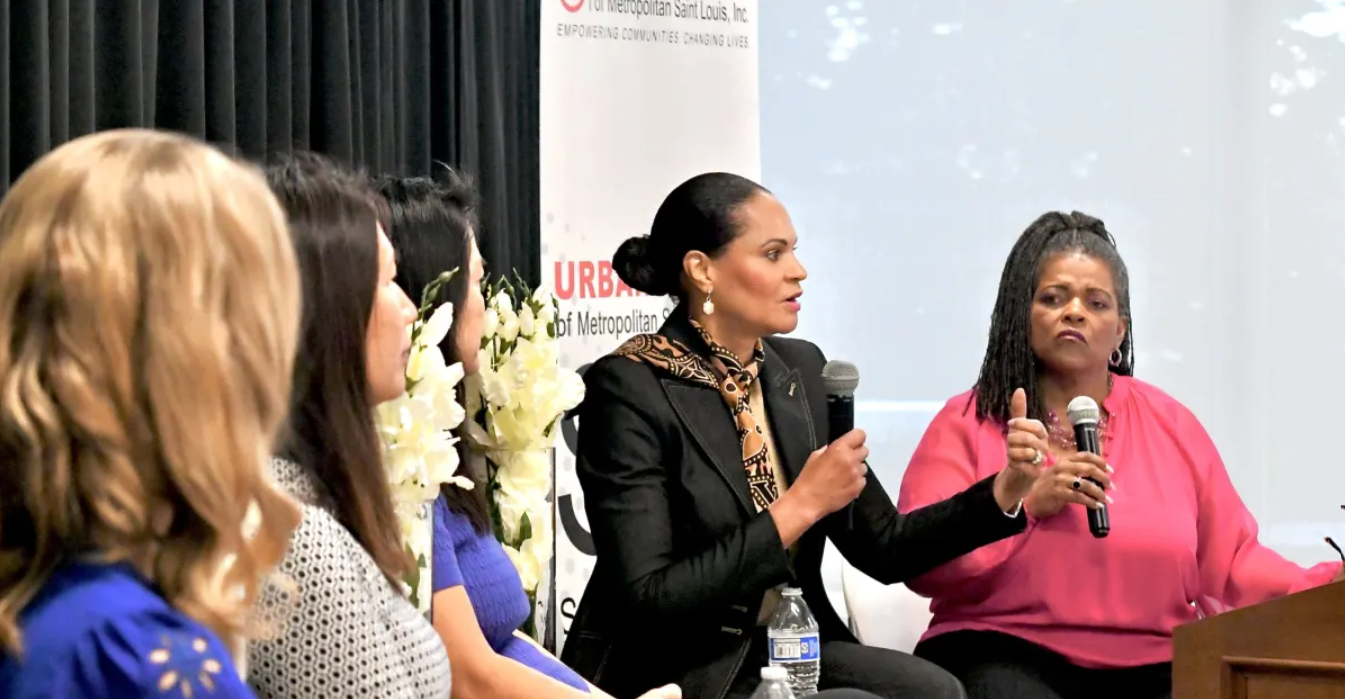Urban League Event Showcases Women Owned Businesses

Entrepreneurs Shontay Lunday (founder of Black Girl Sunscreen) and April Showers (creator of the Afro Unicorn) shared with a group of more than 50 women on the first day of Black History Month, Feb. 1, that the path to a successful business has its bumps.
But they aren’t mountains that cannot be overcome with perseverance and self-belief.
She spoke during an Urban League of Metropolitan St. Louis (St. Louis, MO) Save our Sisters event and sought to inspire other Black women to follow their dreams and create multi-million dollar enterprises.
Showers said she knew as soon as she saw a gap in the stuffed animal market, that she had a successful enterprise on her hands. After success as a realtor, her friends called her “a unicorn.”
But, when she wanted to purchase a unicorn of her own, she didn’t see one that looked like her amongst the white ‘My Little Ponies’ on store shelves. That sparked her idea for the Afro Unicorn, which is now available at major retailers across the nation.
“Y’all keep playing on those gifts and talents. They already exist,” she said to the audience. “It’s already going to happen with or without you, without you, so we have to get out of our own way to make sure that we’re there to see the fruits of our labor.”
When she realized there was no sunscreen that did not leave a white residue on her skin, Lunday knew she wasn’t the only one who experienced the situation. She founded Black Girl Sunscreen, a Los Angeles based company with 25 employees, mostly women of color. The sunscreen is available in 20,000 retail stores across the county.
“I feel honored to be here at the Urban League because, you know, their mission is to empower and educate, you know, underserved communities, and that’s literally what Black Girls sunscreen does, but in a sun safety environment,” she said.
According to the American Cancer Society, many dermatologists struggle to diagnose skin cancer in patients of color. In fact, the CDC said that Black patients often get diagnosed later than their white counterparts, and in some cases the delayed diagnosis can be fatal.
But Lunday said she hopes putting a sun protection product marketed for people of color might encourage people to protect themselves and prevent future complications.
To read the full story, click here.

